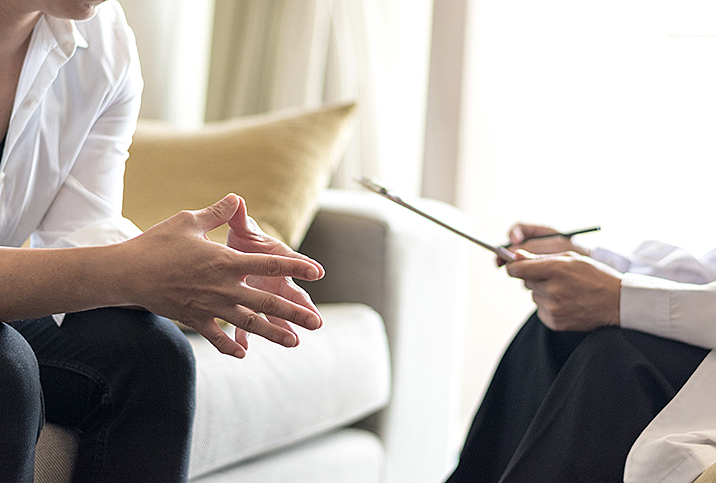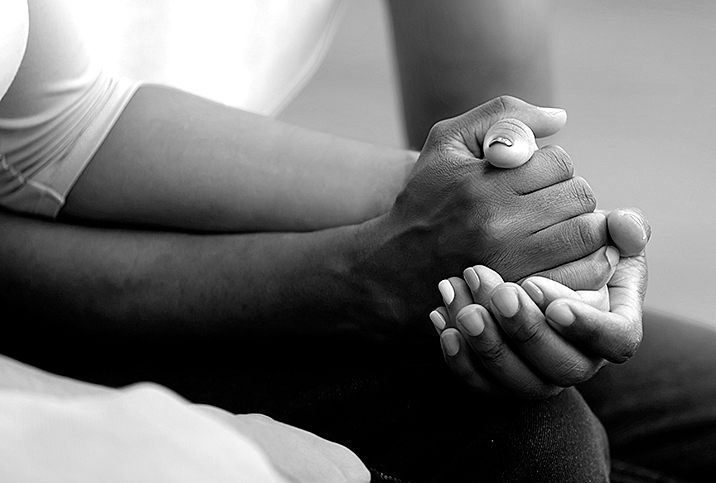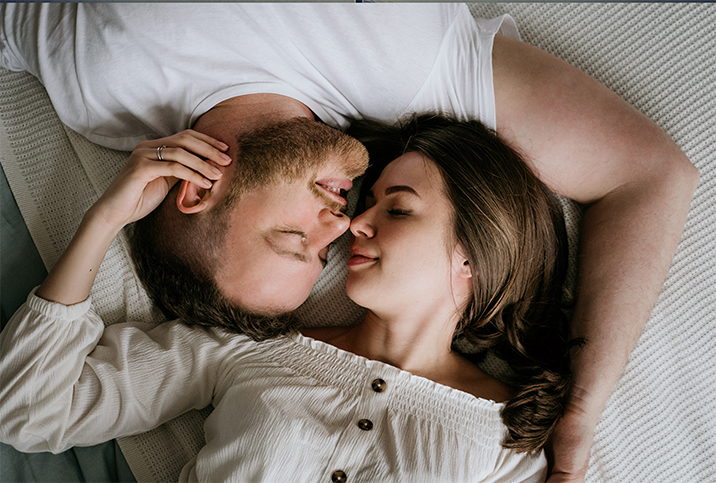What to Do When Interest in Sex Is Gone and You Don't Want It to Be

As with anything else, our sexual interests and desires change and evolve over time. In many instances, this is natural; we get older, we settle down, our priorities shift and we must attend to new responsibilities. It's perfectly reasonable that our interest in sex could decline. And this isn't a problem.
Most of the time.
Of course, there are instances when you feel like you should want to have sex but simply don't; when your lack of desire grows into something that bothers you. This could be hypoactive sexual desire disorder (HSDD).
HSDD differs from asexuality
"The tricky thing about this is that it's completely different from asexuality," said Tami Rowen, M.D., a physician with UCSF Health (University of California, San Francisco). "Hypoactive sexual desire disorder is a disorder, and part of the criteria for diagnosis is it has to cause a patient distress."
HSDD is diagnosed as either lifelong, meaning for as long as you have been sexually active, or acquired, meaning you had sexual desire at one point but it has gone away.
Asexuality, on the other hand, is a sexual orientation and, importantly, doesn't cause emotional distress to a person who identifies as asexual. Admittedly, there is a bit of nuance, and Rowen said she's had patients who have visited her because a partner wants to have sex but the patient doesn't, and at times that was simply because they were asexual, not because they had HSDD.
She said the key differentiator is whether or not you say to yourself, "I want to have that desire."
"Men, women and nonbinary individuals can express and experience distress in myriad of ways," said Lori Lawrenz, Psy.D., a clinical psychologist of 20 years who respecialized in human sexuality and works for the Hawaii Center for Sexual and Relationship Health in Honolulu. "This could be feeling self-directed shame, becoming angry, withdrawing, avoiding sexual situations or even blaming their partner."
How does HSDD develop?
Data from various sources differ, but Mayo Clinic suggested as many as 40 percent of women experience some kind of sexual dysfunction, with HSDD being the most common—but it is not exclusive to women. Yes, fewer men experience the disorder—research cites anywhere from 4.8 percent to 17 percent—but many men do struggle with HSDD at some point.
What are the factors that lead to HSDD?
"In sexual medicine, we have this model that we call the bio-psycho-social model," Rowen explained. "I look at biology as your neurotransmitters, right? We know that there's actually a huge neurotransmitter role in sexual desire."
Of the neurotransmitters that affect sexual desire, some of the biggest players are dopamine and serotonin, Rowen said. Dopamine often boosts sexual desire, while serotonin inhibits it. This is why selective serotonin reuptake inhibitors (SSRIs), a class of drugs typically prescribed for depression, often cause sexual side effects.
At the same time, certain drugs used to treat Parkinson's disease—drugs that stimulate dopamine—have resulted in hypersexuality in patients; there are even reports of excessive gambling, which also triggers dopamine responses.
Along the same lines, people with certain psychological conditions, such as depression, often experience sexual dysfunction, anxiety or body image issues. These symptoms, and similar psychological components, may work to reduce a person's desire for sex.
Social aspects of a person's life—environment, relationships, the workplace—can play a key role in the onset of HSDD, too.
Additionally, Lawrenz explained, the symptoms of HSDD have to persist for six months or longer to be considered for diagnosis. Essentially, it has to be a continual issue, not a one-time occurrence attributed to a stressful day at the office or some other event.
"One night or weekend of sexual frustration does not warrant a diagnostic issue," she said. "Sexual frustration is an experience that can happen with oneself or a partner and is not a diagnosis. Sexual frustration paired with distress and deficient or absent erotic interest and response is more in line with the flavor of HSDD."
Treatment options for HSDD
The most recent edition of the Diagnostic and Statistical Manual of Mental Disorders, Fifth Edition (DSM-5) lists male hypoactive sexual desire disorder (MHSDD) as a separate condition from hypoactive sexual desire disorder, which is designated as exclusive to women, although the two aren't all that different. In fact, the low diagnosis rate in men may be because low desire is inherently difficult to judge because it falls on a spectrum and varies between individuals.
MHSDD is often accompanied by other physical issues, such as erectile dysfunction (ED) or ejaculatory complications. The DSM-5 also notes that there is generally a higher frequency and intensity of sexual desire in men than in women.
As far as treatment is concerned, only a few medication options have been approved by the Food and Drug Administration specifically for the treatment of HSDD, and they're mostly aimed at women.
In most cases, psychotherapy—specifically, sex therapy—is going to be the primary treatment option, Lawrenz noted. She added that couples therapy is likely the most useful way to assist an HSDD patient and their partner in understanding the diagnosis and how it is impacting each person differently.
Rowen said the biggest point to keep in mind is that HSDD is not about arousal. It's about desire. This distinction may seem small, but it's important. Taking a pill such as Viagra for arousal may help with the physical component of sex, but it won't make your desire for sex or your engagement in the act any stronger.
At its core, HSDD is a psychological condition in both men and women, and it is multifactorial. The best way to deal with it is by working with a mental health professional to understand what's causing the condition and how you can work to fix it.


















